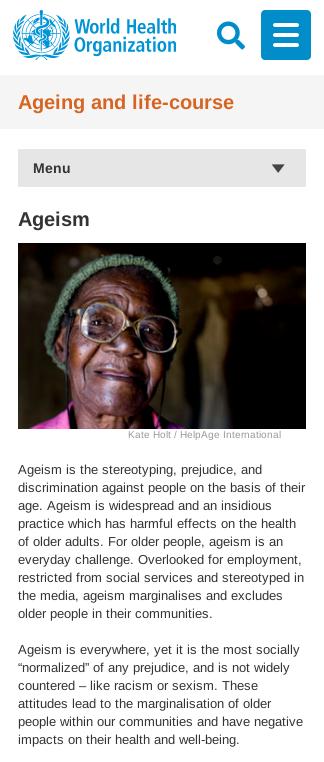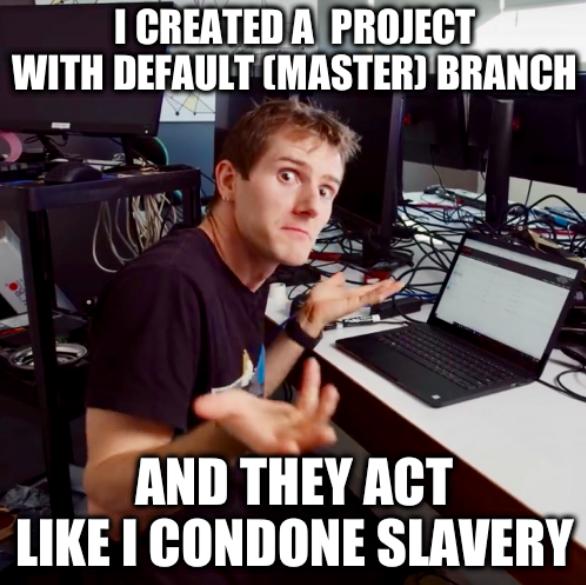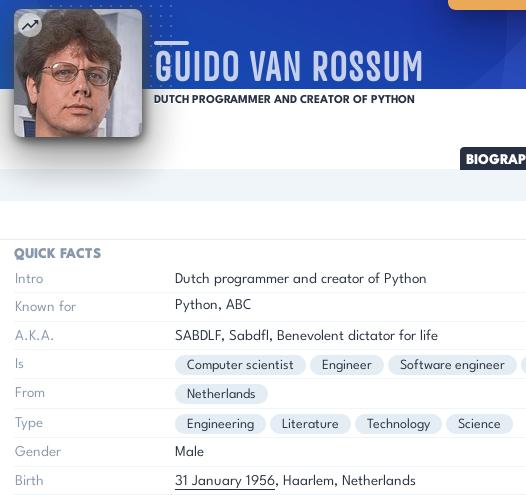
 Summary: The rights of workers are being reduced to nothing (many in their older years made redundant), even in an occupation that is indirectly responsible for automating and thus deprecating jobs in many other occupations
Summary: The rights of workers are being reduced to nothing (many in their older years made redundant), even in an occupation that is indirectly responsible for automating and thus deprecating jobs in many other occupations
A couple of hours ago we explained the ramifications of the rapid cheapening of programmers (in a single generation). This has several -- however counter-intuitively -- negative consequences for all computer users, i.e. almost every person in the world (not many are entirely disconnected from computers or from governance systems which are themselves computer-run; not even Amazonian indigenous people are completely federally ungoverned).
"Remote working? Or remote (removed) from human rights?"Over time (and overtime) we see highly technical people, including Computer Science and other scientific degree holders, having to settle for lesser jobs and/or worse working conditions, which they're conditioned to accept (no other choice). Many are working this weekend (yes, a Sunday) with employer-controlled surveillance inside their very own homes! Thanks, COVID-19. Remote working? Or remote (removed) from human rights? They're one step away from being kicked out (without the literal kicking out; they're already 'out of office'). A lot of this is becoming normal and human beings with families are told they're given favours (for bosses to ask all sorts of things 'in return'). It's a race to the bottom. Corporations decide on everything and governments never stand in their way. Non-corporate actors (and unions) are removed and then banned.
"If Free software is going to truly empower users and developers alike (developers are also users), it'll need to take into account (and its proponents carefully think about) the more difficult questions."With an abundance of high-quality, well-tested code and modular packages out there, many jobs now involve sticking together existing pieces or plugging (integrating) systems, making operations based on pertinent 'pipes' rather than writing (from scratch) of large programs. This means that the remaining tasks involve trouble-shooting operations, very rarely debugging, and occasionally filing bug reports (for a resolution 'upstream', possibly by egalitarian volunteers).
If Free software is going to truly empower users and developers alike (developers are also users), it'll need to take into account (and its proponents carefully think about) the more difficult questions. The goalposts are moving over time; it's no longer 1983 (pre-World Wide Web). It's not a bad or an inconvenient thing that many programs became 'commodities'; it has a democratising nature to it and it's a bridge that blurs inequalities (access to code, akin to Access to Medicines principles), unlike UNIX. GNU is not UNIX, albeit it's a lot like UNIX. UNIX isn't free; those systems were rigidly licensed and extremely expensive in their days/times. Today, or for the past decade or so, GNU by far exceeds UNIX in terms of market share and one might argue in terms of technical merit as well. If many jobs are now little but GNU administration (many call that "Linux", wrongly labeling GNU programs "Linux commands"), with the occasional kernel or X obstacle, the economic impact as well as human rights angle ought to be better explored. They rarely are. In 2020 we've come to the point where my job mostly involves patching servers, barely working to ameliorate issues with them (because those became so rare that monitoring servers is mostly boring, largely a dull activity). Unattended updates mean that reboots are perhaps the most 'exciting' part of the job, albeit not awfully exhilarating (with today's hardware a reboot takes only seconds).
"It's probably OK to be pessimistic, not just because of a virus without an end in sight but because of endless greed and consolidation of wealth/power."Automation is said to be a threat to a lot of important jobs; in practice, however, many jobs aren't at all being automated but outsourced to zero-cost (no salary) labour, typically the customer (e.g. 'self-service' checkout and banking, in effect training the customers to do other people's specialised tasks which these specialists could do a lot faster without spurious mistakes).
 It's probably OK to be pessimistic, not just because of a virus without an end in sight but because of endless greed and consolidation of wealth/power. Free software isn't the solution to it all*; free speech is going the way of the dodo (even within Free software communities) while Free software is co-opted by oligarchs (exploiting free labour), strong/moral leaders ousted, and words removed for at least 2.5 years just "for diversity reasons," according to Red Hat (discussed secretly, no transparency (opposing the rules), as noted in comments from fellow developers). Weeks prior to that "tough talk" Python's founder, Guido van Rossum, abruptly (without prior plans as such) stepped down (leadership vacuum, no successor named, albeit GAFAM filled the gap), noting in his surprise departure message: "Now that PEP 572 is done, I don't ever want to have to fight so hard for a PEP and find that so many people despise my decisions. [...] I'm not worried about the day to day decisions in the issue tracker or on [what Microsoft paid Python to migrate to:] GitHub. [and to CoC antagonists] "your only option might be to leave this group voluntarily. Perhaps there are issues to decide like when should someone be kicked out (this could be banning people from python-dev or python-ideas too, since those are also covered by the CoC)." (Which had been secretly weaponised against a Finn-American, Linus Torvalds, several years earlier)
It's probably OK to be pessimistic, not just because of a virus without an end in sight but because of endless greed and consolidation of wealth/power. Free software isn't the solution to it all*; free speech is going the way of the dodo (even within Free software communities) while Free software is co-opted by oligarchs (exploiting free labour), strong/moral leaders ousted, and words removed for at least 2.5 years just "for diversity reasons," according to Red Hat (discussed secretly, no transparency (opposing the rules), as noted in comments from fellow developers). Weeks prior to that "tough talk" Python's founder, Guido van Rossum, abruptly (without prior plans as such) stepped down (leadership vacuum, no successor named, albeit GAFAM filled the gap), noting in his surprise departure message: "Now that PEP 572 is done, I don't ever want to have to fight so hard for a PEP and find that so many people despise my decisions. [...] I'm not worried about the day to day decisions in the issue tracker or on [what Microsoft paid Python to migrate to:] GitHub. [and to CoC antagonists] "your only option might be to leave this group voluntarily. Perhaps there are issues to decide like when should someone be kicked out (this could be banning people from python-dev or python-ideas too, since those are also covered by the CoC)." (Which had been secretly weaponised against a Finn-American, Linus Torvalds, several years earlier)
"Free software isn't the solution to it all..."We may never know what led to this (a lot of the discussion was held privately, as noted publicly some time later on the issue tracker); "I'm not getting younger," van Rossum said, "(I'll spare you the list of medical issues.)" But he was not in his retirement age, either (unlike Richard Stallman). More than 2 years later he still isn't. He's 64. ⬆
